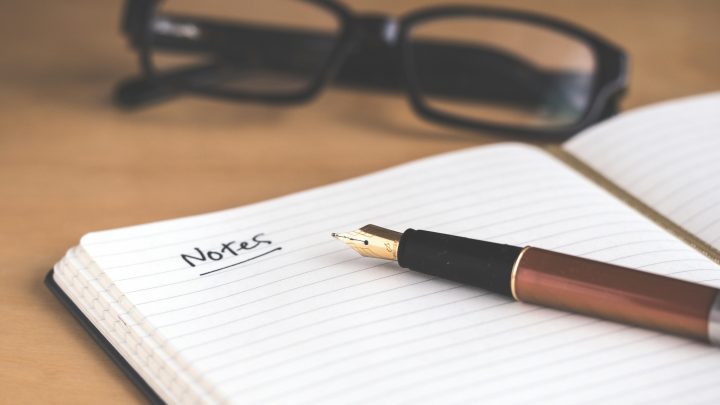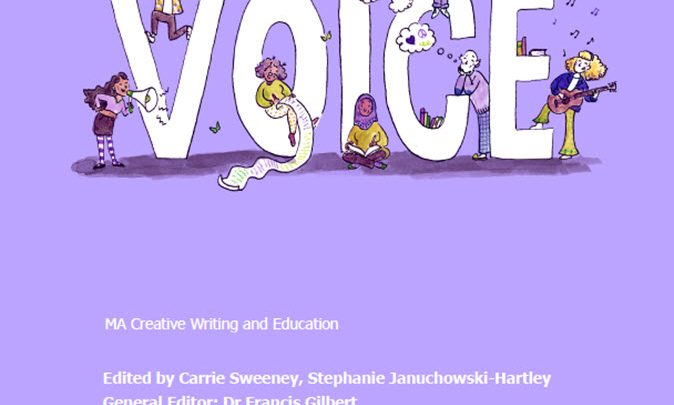For
target readership of the post
-
Four reasons there is a Connected Curriculum at Goldsmiths
Why bring all the students at a university together to learn critical thinking and research skills?
-
Four reasons we should all learn about Green Careers (+ some top job hunting tips!)
A recount of the Green Careers event that I co-ran (with Widening Participation, the Horniman Museum, and Lewisham’s Young People’s Climate Network) in May 2024 at Goldsmiths University.
-
Of Note- Four Ways Taking Notes have Enriched My Life
Notes have helped me remember; they’re my safe space; they’re therapeutic; and they’ve liberated my imagination
-
Freeing Creative Voice
An anthology investigating how educators, creatives, and learners can liberate and uplift their voices through writing, teaching, investigating, and intentional everyday living.
-
Why teach creative writing? Examining the challenges of its pedagogies
One of the purposes of teaching creative writing is ‘to heal’, in other words, creative writing is taught as a form of therapy, maybe more than is openly stated. Many teachers set therapeutic tasks so the author can learn and grow from the experience of writing about it.
-
Lockdown lessons: Teaching and working during the Covid-19 crisis
Some of the lessons I learnt during the Covid lockdown, about staying sane, being mindful and engaging with technology
-
Finding a new path: Building affective online learning spaces for creative writing and arts practice
On Covid-19 related research, for the British Educational Research Association.
-
8 Ways To Teach spelling, punctuation and grammar
For many, teaching Spelling, Punctuation and Grammar (SPaG) is daunting. The stakes are high, and the weighting on SPaG in exams has raised anxieties. Here are some tried and tested approaches.
-
Teaching 1984 in the surveillance culture of schools
Teaching Orwell’s “1984” as a set text in an examination-obsessed and heavily surveilled school system.
-
Mindfulness and Creative Writing
How mindfulness can be used by creative writers to develop their practice and pedagogy
-
The Teachers’ Standards and English Teaching
Some interesting ideas about educating English teachers in relation to Teaching Standards set in 2012… However, these standards are less emphasized now than when I wrote this article.
-
Riding the Reciprocal Teaching Bus. A teacher’s reflections on nurturing collaborative learning in a school culture obsessed by results
My interactions with the teaching strategy known as Reciprocal Teaching (or Reciprocal Reading), which involves students learning to read collaboratively in small groups.
-
Aesthetic literacy and autobiography
How I became ‘aesthetically literate’, and used other artistic work to educate and heal myself. ‘Aesthetic literacy’ may even be more important than other forms of literacy because of its therapeutic dimensions.
-
Dreaming of a Better World
A creative writing and reading project, carried out at Deptford Green school, which put the principles of Reciprocal Teaching into practice.
-
The Creative Writing Teacher’s Toolkit
There are certain pedagogical strategies, such as encouraging freewriting, using prompts and fostering flow which can significantly help learners to write creatively.
-
But sir, I lied – The value of autobiographical discourse in the classroom
The benefits of teachers using their own autobiographical writing in the classroom. The blurring of truth and fiction in autobiographical writing can provide students with the cloak of fiction when writing about their own lives
-
Aesthetic Learning, Creative Writing and English Teaching
‘Aesthetic learning’ can be helpful for English teachers, because we are all ‘aesthetic learners’: we learn to appreciate the qualities of the worlds we inhabit, whether actual or virtual.
-
My Dr Jekyll and Mr Hyde Audio Book is now published: free copies available, read more here!
I am delighted that my new audiobook Analysis & Study Guide: Dr Jekyll and Mr Hyde: Complete text & integrated study guide (Creative Study Guide Editions) is now available here on Audible, Amazon and ITunes. The best audio version of the novel there is! I firmly believe that actor and voice artist Richard J. Bunn […]
-
Making an audio book of my Dr Jekyll and Mr Hyde study guide
I’m very excited to announce that the marvellous actor and audiobook reader Richard Bunn will be reading my bestselling study guide ‘Analysis and Study Guide: Dr Jekyll and Mr Hyde’. The book has proved to be one of my popular books over the years and has continued to sell well. I was impressed by all […]
-
Five Ways to Revolutionise Reading in Your School
These suggestions are based on the points raised at the Reading Revolution Conference held at Goldsmiths, University of London on Saturday 23rd September 2017. ONE: Encourage Reading for Pleasure Read for the sake of reading. Read aloud, read in groups, read in pairs, read silently. Read poems, stories, articles, blogs, relevant social media and so […]
-
Shakespeare as cultural capital
This article, in a slightly different form was initially published on the Teachit website. Shakespeare as Cultural Capital by Francis Gilbert on Scribd
-
How can we help secondary school students read for pleasure and improve their reading skills? #GdnBLReading
Yesterday I spoke at the Guardian Education Centre for a conference on Reading for Pleasure in the secondary classroom. The Guardian’s literary editor, Claire Armistead, kicked off the day by explaining that we need our young people to enjoy reading and to read whole texts which are not part of the curriculum; she pointed out […]
-
Reciprocal Teaching and the Time Devil
I’ve been working hard at helping Key Stage 3 students in Deptford Green school, a London comprehensive, to develop their reading skills. To that end, I have written a book, The Time Devil, which is set partly in Deptford Green and partly in the National Maritime Museum, whom we are also working with. I have […]
-
Improving students’ reading using Reciprocal Teaching
Respected research has shown for some time that certain teaching approaches are particularly effective at improving students’ reading skills; one such strategy is called Reciprocal Teaching (Oczkus, 2010:Palincsar and Brown, 1984) which gets learners reading in groups. I’ve written about the success of this strategy in two previous issues of NATE Magazine (June 2015/June […]

















